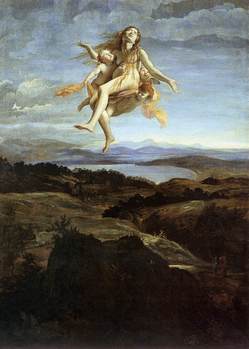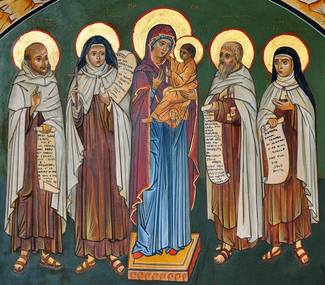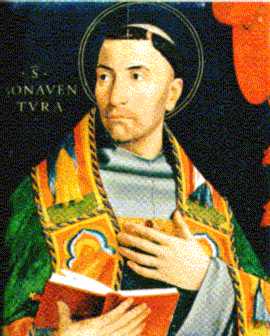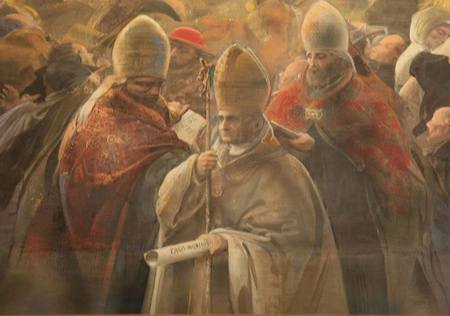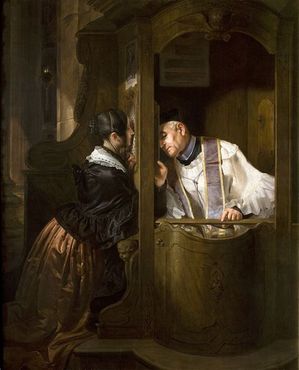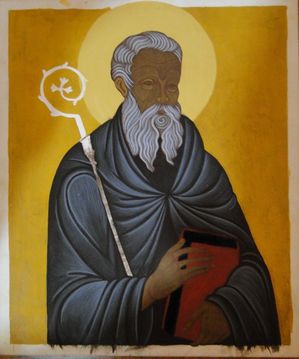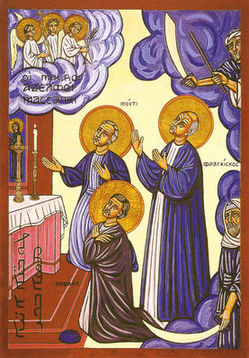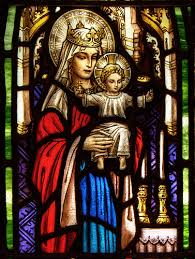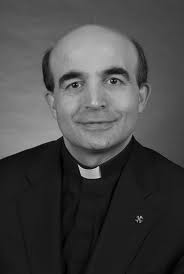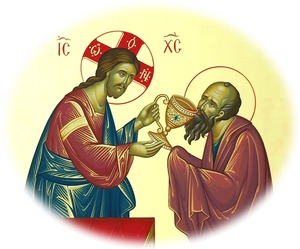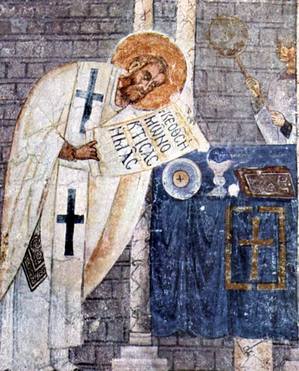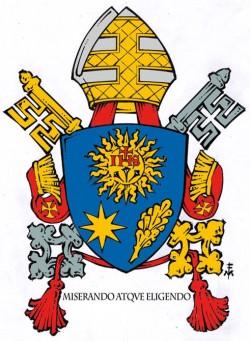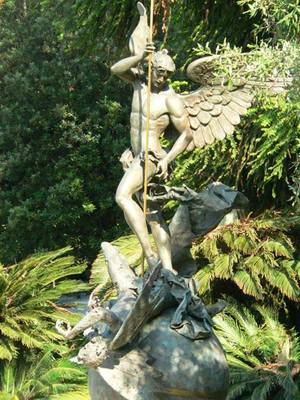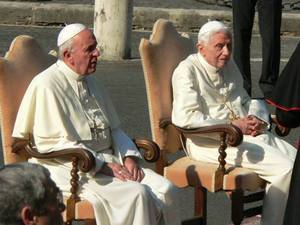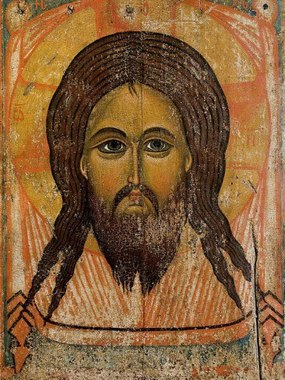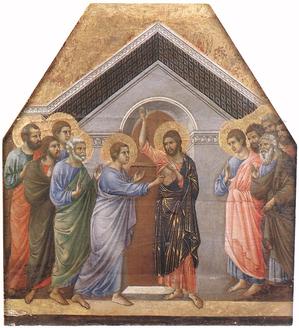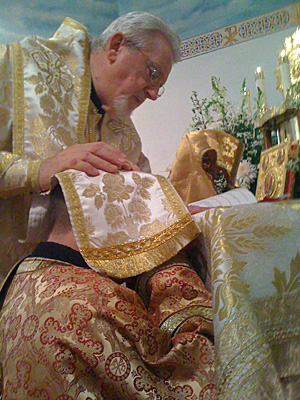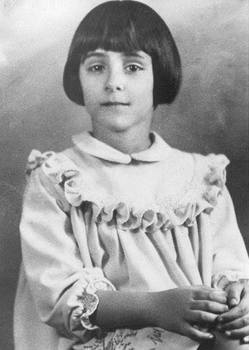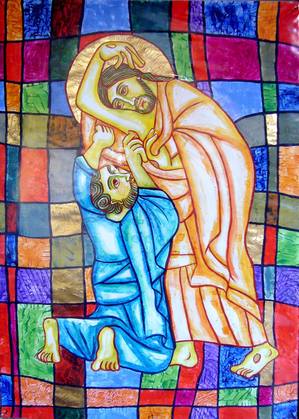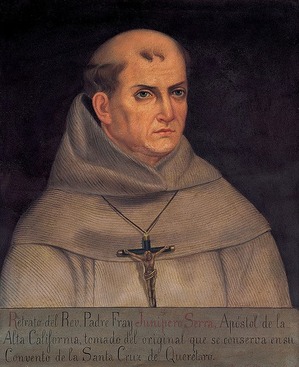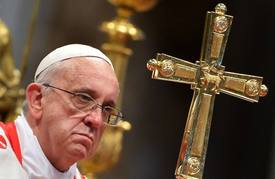
"Go and make Christ known to all nations." The missionary spirit is once again coming to the table. As Christians, we are baptized to come into communion with God who is Father, Son, and Holy Spirit, to live as adopted children of God faithful to the life of the Church. The sacrament of Baptism makes us disciples of the Lord. We can't forget, nor can we neglect, to make the Lord known to all people by the witness of our lives. Our call is the same as the Prophet Isaiah's, "Here am I; send me" (Is 6:8). The preaching of the Lord's Kingdom is not reserved to few; no, the mission to proclaim the presence of the Kingdom is given to all the baptized in all places. Hence, we work doing the new evangelization. Catholics as missionaries in this country needs renewal. We Catholics can't leave the missionary work to the Mormons, the Jehovah Witnesses, the Evangelicals or the Muslims. If we truly believe that the Lord has given us Himself as the way, the truth and the life, then we ought to share this experience. Moreover, in living the Gospel, following the teaching of the Church, the reception of the sacraments, we care for those live on the margins (think of the corporal works of mercy).
I see in Pope Francis calling us to be attentive to the missionary impulse again as fundamental to our faith and life in the Church. The Pope comes as this missionary notion from his own spiritual formation received as a member of the Society of Jesus. No doubt he thinks of the early founders of the Jesuits, and he likely recalls the Jesuit saint Francis Borgia, the third Jesuit Superior General who spent much energy on missionary vocation of the Jesuits, of translating the faith and the Exercises of Loyola into a more concrete expression. We can say that Pope, like Borgia, knows that the missionary work we are called to perform is a ministry that takes on a variety of aspects: preaching, teaching, sanctifying, interceding, healing, guiding others in the spiritual life, administering and governance.
Pope Francis' Sunday Angelus address needs to be studied and prayed about. Think about the points highlighted.
This Sunday's Gospel (Lk 10:1-12.17-20) speaks to us precisely of this: of the fact that Jesus is not an isolated missionary, does not want to fulfill his mission alone, but involves his disciples. Today we see that, in addition to the Twelve Apostles, He calls seventy-two others, and sends them into the villages, two by two, to announce that the Kingdom of God is near. This is very beautiful! Jesus does not want to act alone, He has come to bring to the world the love of God and wants to spread that love with a style of communion and fraternity. For this reason, he forms immediately a community of disciples, which is a missionary community. Iright from the start, He trains them for the mission, to go [on the mission].
Beware, however: the purpose is not to socialize, to spend time together - no, the purpose is to proclaim the Kingdom of God, and this is urgent! There is no time to waste in small talk, no need to wait for the consent of all - there is need only of going out and proclaiming. The peace of Christ is to be brought to everyone, and if some do not receive it, then you go on. To the sick is to be brought healing, because God wants to heal man from all evil. How many missionaries do this! They sow life, health, comfort to the peripheries of the world.
These seventy-two disciples, whom Jesus sent ahead of him, who are they? Whom do they represent? If the Twelve are the Apostles, and therefore also represent the Bishops, their successors, these may represent seventy-two other ordained ministers - priests and deacons - but in a wider sense we can think of other ministries in the Church, catechists and lay faithful who engage in parish missions, those who work with the sick, with the various forms of discomfort and alienation, but always as missionaries of the Gospel, with the urgency of the Kingdom that is at hand.
The Gospel says that those seventy-two returned from their mission full of joy, because they had experienced the power of the Name of Christ against evil. Jesus confirms this: to these disciples He gives the strength to defeat the evil one. He adds, though: "Do not rejoice that the spirits submit to you, but rejoice that your names are written in heaven. (Luke 10:20)" We should not boast as if we were the protagonists: the protagonist is the Lord [and] His grace. Our joy is only this: [in] being His disciples, His friends.
May Our Lady help us to be good servants of the Gospel.
Pope Francis
Sunday Angelus Address
8 July 20013
